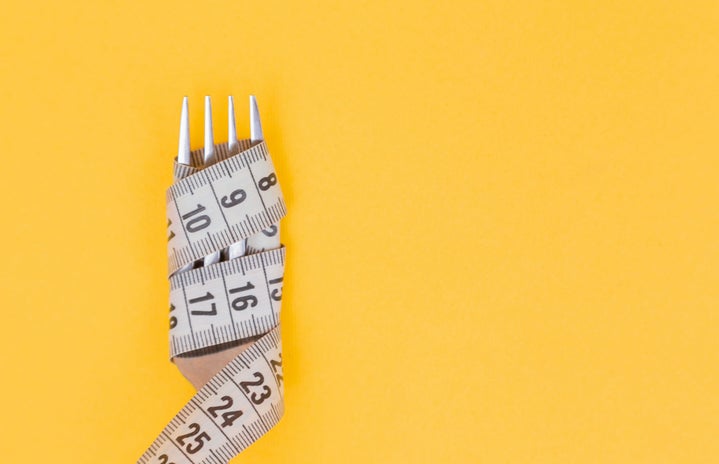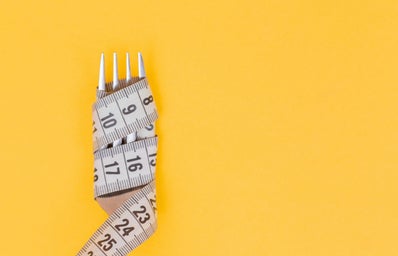Have you ever seen those labels at the grocery store that say ‘0 net carbs’ or ‘keto friendly’? These labels are just one example of how diet culture has invaded nearly every aspect of our lives. Diet culture can help people have healthier lifestyles, but we all know that too much of a good thing is a bad thing, and diet culture has only gotten worse during the pandemic. I haven’t been an exception to this honorary symptom of COVID-19. Ever since I jumped on the bandwagon and started doing those viral at-home workouts when quarantine began, I’ve developed an eating disorder and body image issues, and I’ve spent almost two years now suffering from them. Diet culture took my life by the reins and ruined my relationship with food, but with the help of mental health professionals and my close friends and family, I’ve come a long way from counting my calories.
I used to weigh myself religiously and starve myself in hopes of making that number on the scale go down. I would compulsively list everything I ate and didn’t even let myself eat things out of order, like sides before the main dish, because I thought my eating had to be perfect. I didn’t let myself eat carbs and I would cry myself to sleep if I caved and had some pasta. I avoided eating at night because I weighed myself every morning, and I had so many sleepless nights where my grumbling stomach kept me up. Diet culture distorted my perception of a “healthy lifestyle,” and I thought that I was a failure unless I had the “ideal body.”
These habits caused me to lose a lot of weight last year but in hindsight, I was perfectly healthy at the weight I was. This horrible relationship I had with my body image caused me to develop body dysmorphia – a condition where you become so obsessed with your body’s flaws that they’re all you see. I hid my body with hoodies and sweats in 90 degree weather and I would constantly stand in front of the mirror criticizing every curve, dimple, or blemish I had. I relentlessly compared myself to unrealistic expectations, like Instagram influencers and supermodels, because I couldn’t accept my body for what it was.
The shame that surrounded my eating habits and my body kept me from doing so many things that I loved. I would avoid hanging out with friends because I was nervous they’d want to stop somewhere “unhealthy” to eat, and I grew apart from my parents because I was too embarrassed to tell them what I was struggling with. It was so hard for me to realize that hiding my struggles only made them worse. I thought that if everyone knew about what I was going through, that would only make them judge me and think I was even bigger. But this isn’t the case. We often think that we have to fight our battles alone, but sometimes the only way to overcome something is with a strong support system.
My friends were the ones who pushed me to seek professional help. I began seeing a nutritionist this past summer and I have been seeing her ever since. My nutritionist was the one who helped me realize that I deserve to nourish myself and food is not the enemy. Food is something that I should get enjoyment out of and not something that should be taking up so much of my headspace. I’m proud to say that I have a much better relationship with food today than I did almost two years ago.
Diet culture makes us think that we need to look a certain way and weigh a certain amount if we want to be accepted by society, but our weight doesn’t determine our self worth and talking to others can help us understand this. I still have a long road to recovery, but when we normalize talking about mental health issues, we make people feel less embarrassed about their struggles and we encourage more people – like me – to share their stories and seek out the help they need. You are not alone, and this too shall pass.


